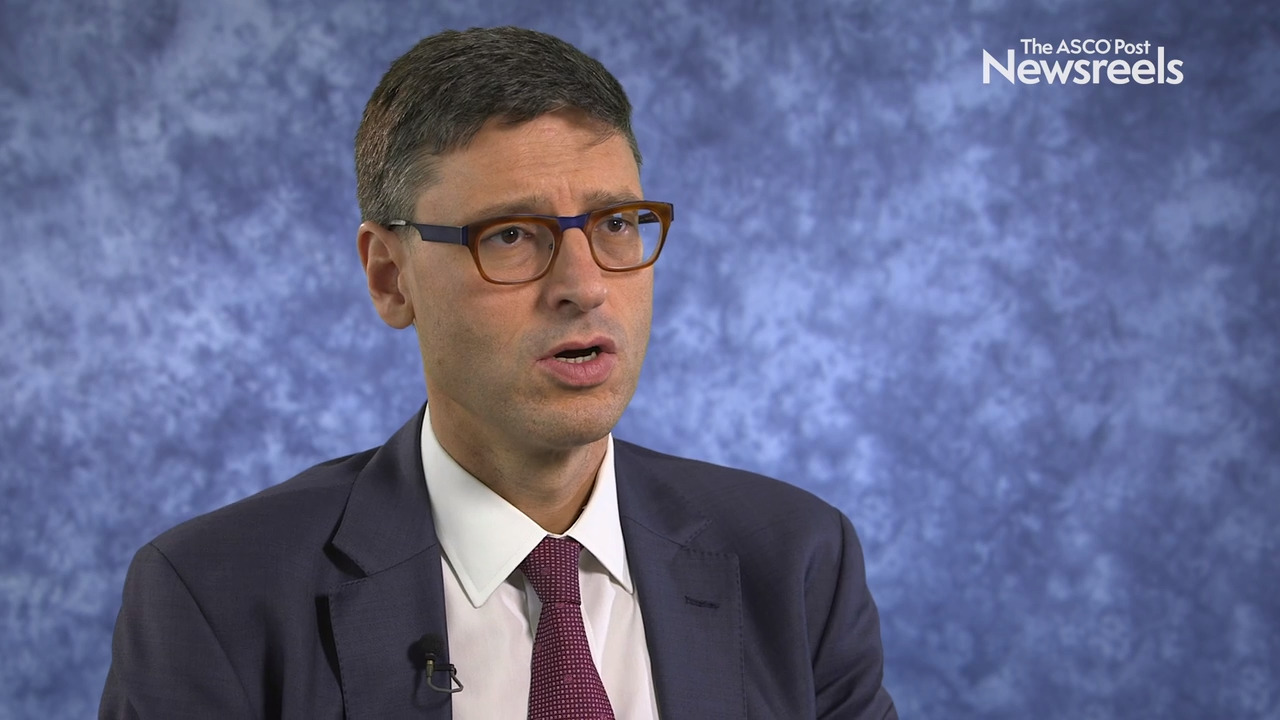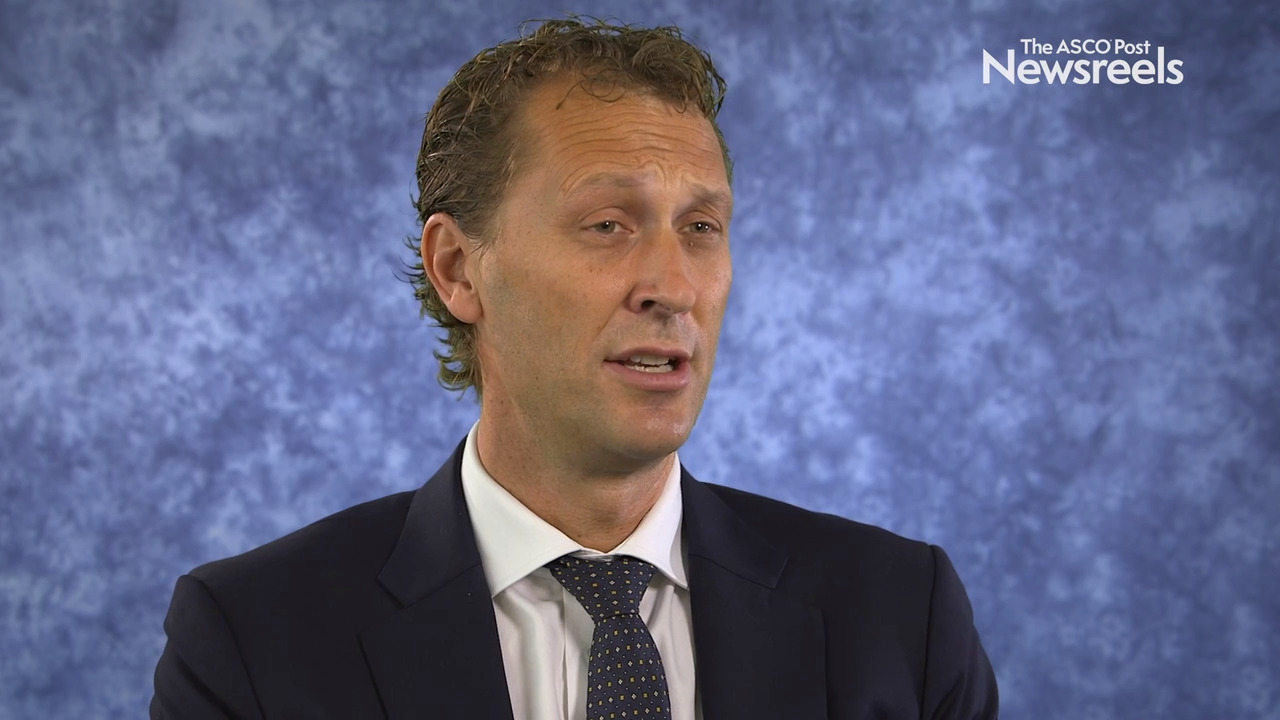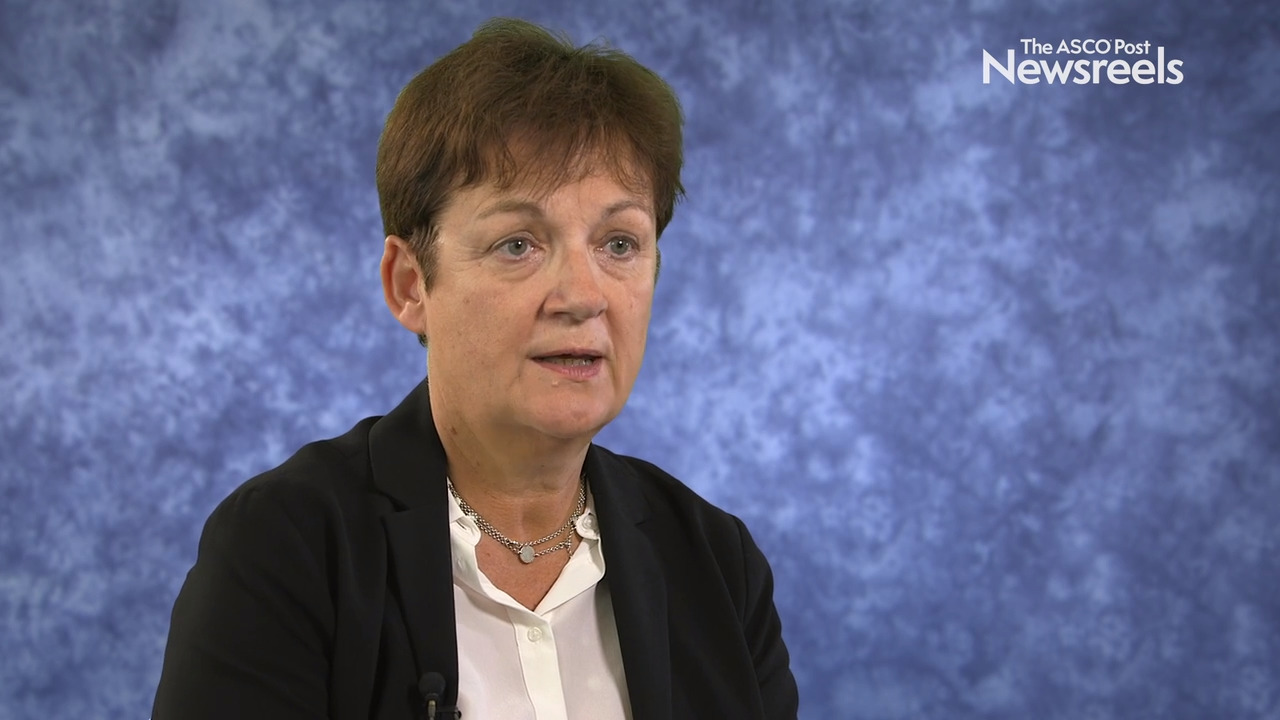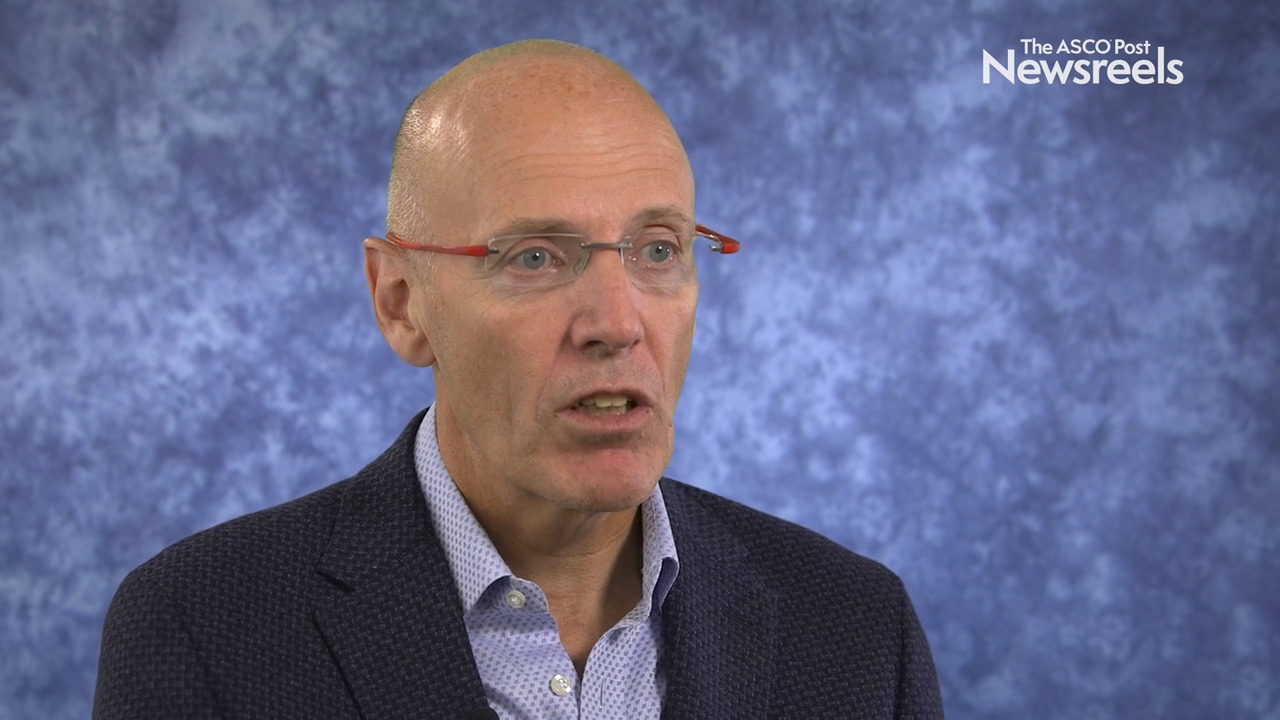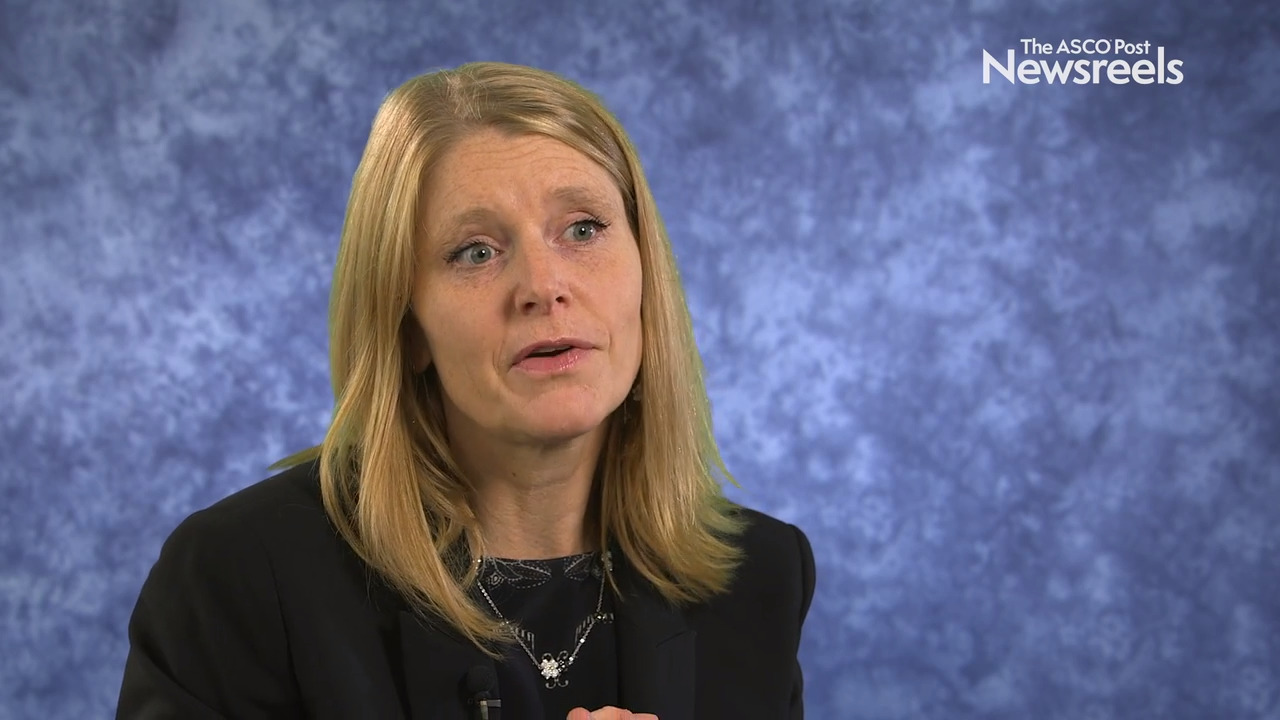Aleix Prat, MD, PhD, on a HER2-Positive Breast Cancer Biomarker: Results From the PAM50 Trial
ESMO 2019 Congress
Aleix Prat, MD, PhD, of Hospital Clinic de Barcelona, discusses the findings of a meta-analysis showing that the HER2-E subtype may predict pathologic complete response beyond hormone receptor status in HER2-positive early breast cancer (Abstract 248P).
Antonio González Martín, MD, PhD, of the Clínica Universidad de Navarra, discusses study findings showing niraparib therapy significantly improved progression-free survival in patients with advanced ovarian cancer across biomarker subgroups (Abstract LBA1).
Peter Schmid, MD, PhD, of Queen Mary University of London Barts Cancer Institute, discusses pathologic complete response data from a phase III study of pembrolizumab/chemotherapy vs placebo/chemotherapy as neoadjuvant treatment, followed by pembrolizumab vs placebo as 6-month adjuvant treatment for early triple-negative breast cancer (Abstract LBA8).
Véronique Diéras, MD, of Institut Curie Paris & Saint Cloud, discusses results from the phase III BROCADE 3 trial, which investigated the PARP inhibitor veliparib in combination with carboplatin/paclitaxel in patients with advanced HER2-negative, germline BRCA–mutated breast cancer (Abstract LBA9).
The ASCO Post Staff
Nicholas D. James, PhD, MBBS, of University Hospitals Birmingham NHS Trust, discusses results from a long-term follow-up of a cohort treated with docetaxel in the STAMPEDE randomized trial, confirming that the treatment showed benefit in patients with both high- and low-volume disease (Abstract 844O).
Solange Peters, MD, PhD, of the Oncology Department of CHUV, discusses study findings from the first phase III trial to show PD-1 and CTLA-4 inhibition is effective in non–small cell lung cancer, with improved overall survival vs chemotherapy (Abstract LBA4).
